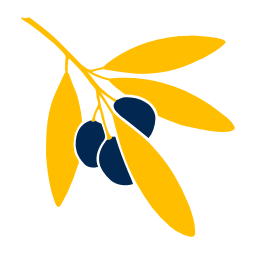The University of California offers a number of resources for the olive grower and processor.
Growing
- San Joaquin Valley Trees. UC ANR provides information on soils, irrigation, nutrition and integrated pest management for trees and vines in San Joaquin Valley.
- Sacramento Valley Orchard Source. UC ANR provides current reports on evapotranspiration and pests, as well as crop specific information, for Sacramento Valley orchards.
- UC Farm Advisors. UC Cooperative Extension offers farm advisors throughout California who are specialists in the growing conditions for their areas. To find a farm advisor, go to this page from the Fruit and Nut Research Information Center, or go to UC Division of Agricultural and Natural Resources, click on your county, click on “About Us” and then “Contact Us.” Find a farm advisor with expertise in olives from the staff list, or call the main number and ask to speak to the most appropriate staff person.
- Olive Research and Education. The UC Davis Olive Center offers a schedule of events such as short courses and symposia and research.
- Olive Information. The Fruit and Nut Research Information Center offers resources on many crops, including olives. The site includes information on tree biology, orchard management, and other helpful resources.
- Olive Fertilization. The California Fertilization Guideline for Olive is being developed by UC cooperative extension specialists in Nutrient Management. It is an easy-to-use, interactive website which summarizes current information for management of nitrogen (N), phosphorus (P), potassium (K) and boron (B) in California olive orchards.
- Drought and Irrigation Management. UC has developed deficit irrigation strategies to help growers manage drought in olive groves. UC Davis and the California Department of Water Resources have developed the California Irrigation Management Information System to help growers estimate their water needs efficiently.
- Pest and Disease Management. The UC Davis website on Integrated Pest Management offers identification and control information for insects, diseases, and weeds.
- Soil survey. The California Soil Resource Lab offers several ways to interactively explore soil types and groundwater storage.
- Nitrogen management. The California Institute for Water Resources provides research-based resources to protect water supplies through effective nitrogen management.
- Weeds. The Weed Research Information Center provides weed identification and control information.
- Cost Studies. The UC Davis Department of Agricultural and Resource Economics provides access to all of their published cost-and-return studies on a wide range of crops, including olive studies going back to 1938.
- Mechanical Harvesting Research. Dr. Louise Ferguson has led a successful mechanical harvesting research project for medium-density orchards for table olives.
- Olive Production Manual. The Olive Production Manual summarizes decades of UC research on orchard practices for the table olive sector, with much of the information also relevant to the oil sector. $35
- Organic Olive Production Manual. A supplement to the Olive Production Manual that covers organic olive production and olive oil production. $18
- DNA-Based Olive Variety Identification Service. Foundation Plant Services offers a DNA testing service to determine olive variety.
Processing and Food Safety
- Olives: Safe Methods for Home Pickling. Free UC information on producing table olives at home in various styles, including California Style, Spanish Style, Greek Style, Kalamata Style, and Sicilian Style.
- Food Safety. UC Davis Food Safety provides links to presentations, publications, and other websites with information related to the production, harvest, and processing of foods. The emphasis is on microbial food safety but many other subjects related to food such as biotechnology, food quality and food security are also addressed. The UC Davis Olive Center published a literature review on the Microbiological Food Safety of Olive Oil.

